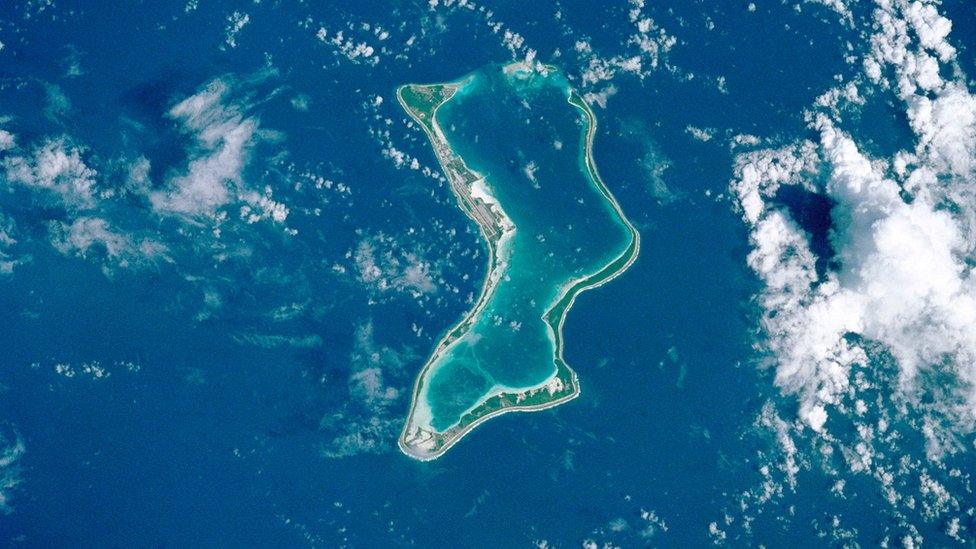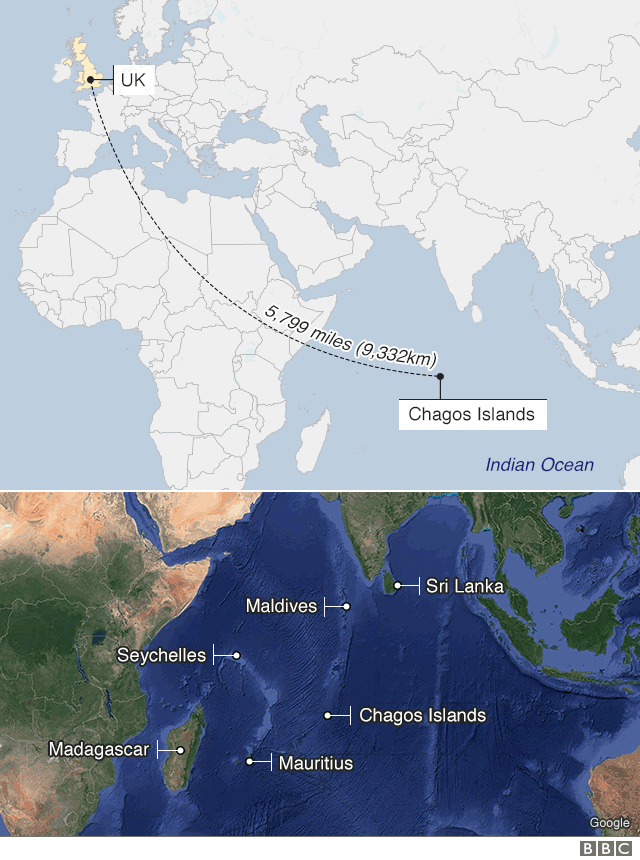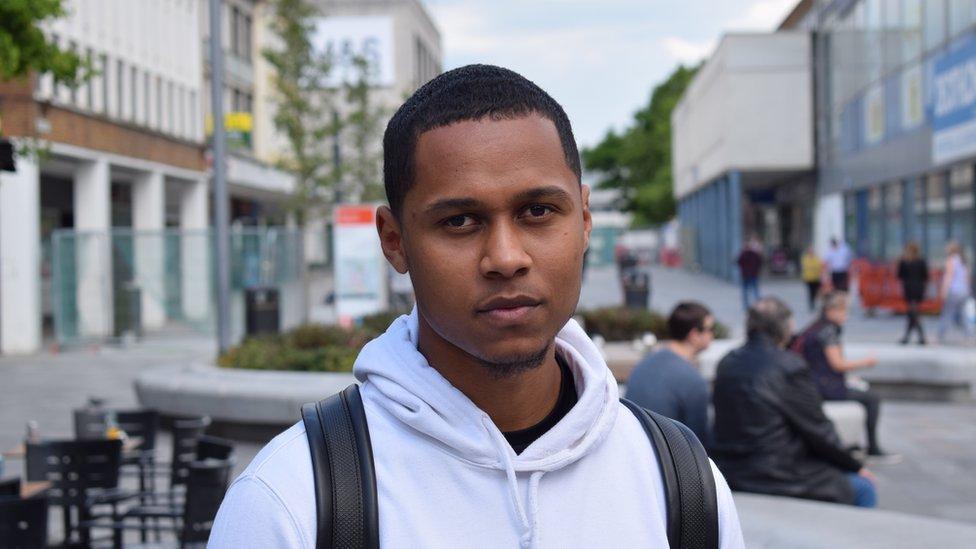Chagos Islands dispute: UK misses deadline to return control
- Published

One of the Chagos Islands - Diego Garcia - is home to a US military base
The UK has been called an illegal colonial occupier by Mauritius after it ignored a deadline to return control of an overseas territory to the island nation.
The UN had given the UK six months to give up control of the Chagos Islands - but that period has now passed.
Mauritius says it was forced to trade the small archipelago in the Indian Ocean in 1965 for independence.
The UK says it does not recognise Mauritius' claim to sovereignty.
Britain's Foreign and Commonwealth Office (FCO) insists it has every right to hold onto the islands - one of which, Diego Garcia, is home to a US military airbase.
"The UK has no doubt as to our sovereignty over the British Indian Ocean Territory (BIOT), which has been under continuous British sovereignty since 1814," it said in a statement.
"Mauritius has never held sovereignty over the BIOT and the UK does not recognise its claim."
But Labour Party leader Jeremy Corbyn said it was important to return the islands "as a symbol of the way in which we wish to behave in international law".
He added: "I am looking forward to being in government to right one of the wrongs of history."
The Chagos Archipelago was separated from Mauritius in 1965, when Mauritius was still a British colony. Britain purchased it for £3m - creating the BIOT.
Mauritius claims it was forced to give it up in exchange for independence, which it gained in 1968.
In May, the UN General Assembly voted overwhelmingly in favour of the Chagos Islands being returned - with 116 states backing the move and only six against.
The UN said that the decolonisation of Mauritius, external "was not conducted in a manner consistent with the right to self-determination" and that therefore the "continued administration... constitutes a wrongful act".
The UN resolution came only three months after the UN's high court advised the UK should leave the islands "as rapidly as possible".
As the six-month period came to a close, Mauritian Prime Minister Pravind Jugnauth said the UK was now an illegal colonial occupier.


Over the decades Mauritius has staked its claim, and finally - particularly after the Brexit vote - Britain's traditional allies in the international community have started to desert Britain, to abstain or to vote against it at the UN.
And the UN is now taking pretty significant steps to say: "Britain you are behaving appallingly, this is still colonialism - give it back."
Britain has ignored those calls - so what might any repercussions look like?
Sanctions would be slow, incremental and largely institutional - in the sense that Britain is going to find itself squeezed at institutions that it has traditionally seen as very important.
Britain no longer has a judge on 14-seat International Court of Justice in The Hague, and it's going to start to see UN maps reflecting the legal fact that the UN sees this islands as belonging to Mauritius.

The deadline is not binding, so no sanctions or immediate punishment will follow - but that could change.
At the time of the UN resolution, the FCO said the UK did not recognise Mauritius' claim to sovereignty, but would stand by an earlier commitment to hand over control of the islands to Mauritius when they were no longer needed for defence purposes.
Between 1968 and 1974, Britain forcibly removed thousands of Chagossians from their homelands and sent them more than 1,000 miles away to Mauritius and the Seychelles, where they faced extreme poverty and discrimination.


Britain then invited the US to build a military base on Diego Garcia.
US planes have been sent from the base to bomb Afghanistan and Iraq. The facility was also reportedly used as a "black site" by the CIA to interrogate terrorism suspects. In 2016, the lease for the base was extended until 2036.
The UK has repeatedly apologised for the forced evictions, which Mr Jugnauth has said were akin to a crime against humanity.
In 2002, the British Overseas Territories (BOTs) Act granted British citizenship to resettled Chagossians born between 1969 and 1982. But the 13-year window has left some families divided.
- Published1 June 2019

- Published22 May 2019

- Published25 February 2019
